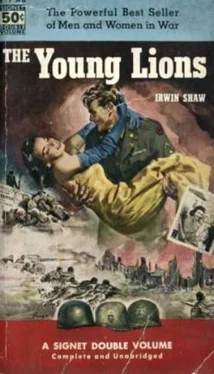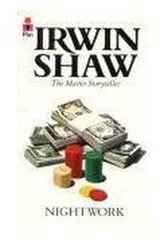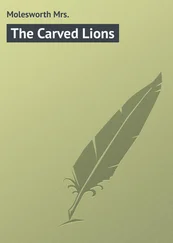Irwin Shaw - The Young Lions
Здесь есть возможность читать онлайн «Irwin Shaw - The Young Lions» весь текст электронной книги совершенно бесплатно (целиком полную версию без сокращений). В некоторых случаях можно слушать аудио, скачать через торрент в формате fb2 и присутствует краткое содержание. Жанр: Классическая проза, на английском языке. Описание произведения, (предисловие) а так же отзывы посетителей доступны на портале библиотеки ЛибКат.
- Название:The Young Lions
- Автор:
- Жанр:
- Год:неизвестен
- ISBN:нет данных
- Рейтинг книги:4 / 5. Голосов: 1
-
Избранное:Добавить в избранное
- Отзывы:
-
Ваша оценка:
- 80
- 1
- 2
- 3
- 4
- 5
The Young Lions: краткое содержание, описание и аннотация
Предлагаем к чтению аннотацию, описание, краткое содержание или предисловие (зависит от того, что написал сам автор книги «The Young Lions»). Если вы не нашли необходимую информацию о книге — напишите в комментариях, мы постараемся отыскать её.
The Young Lions — читать онлайн бесплатно полную книгу (весь текст) целиком
Ниже представлен текст книги, разбитый по страницам. Система сохранения места последней прочитанной страницы, позволяет с удобством читать онлайн бесплатно книгу «The Young Lions», без необходимости каждый раз заново искать на чём Вы остановились. Поставьте закладку, и сможете в любой момент перейти на страницу, на которой закончили чтение.
Интервал:
Закладка:
Johnson was there, in a yellow tennis shirt with brown bars across it. He had brought along a tall, pretty girl, with a serious, intelligent face, and automatically, as Michael shook her hand, he wondered where Mrs Johnson was this summer afternoon.
"Miss Margaret Freemantle…" Laura was conducting the introductions. Miss Freemantle smiled slowly, and Michael felt himself thinking bitterly: How the hell does Johnson get a girl as pretty as that?
Michael shook hands with the two Frenchwomen. They were sisters, both of them frail, and dressed in black, quite smartly, in a style that you felt must have been very fashionable some years before, although you could not remember exactly when. They were both in their fifties, with upswept lacquered hair and soft, pale complexions and amazing legs, slender and finely shaped. They had delicate, perfect manners, and long years of teaching young girls had given them an air of remote patience with the world. They always seemed to Michael like exquisitely mannered visitors from the nineteenth century, polite, detached, but secretly disapproving of the time and the country in which they found themselves. Today, despite the disciplined evidences of preparation for the afternoon, the clever rouging and eye-shadow, there was a wan, drawn look on their faces, and their attention seemed to wander, even in the middle of a conversation.
Michael looked at them obliquely, suddenly realizing what it must be like to be French today, with the Germans near Paris, and the city hushed listening for the approaching rumble of the guns, and the radio announcers breaking into the jazz programmes and the domestic serials with bulletins from Europe, with the careful American pronunciation of names that were so familiar to them, Rheims, Soissons, the Marne, Compiegne…
If only I was more delicate, Michael thought, if only I had more sense, if I wasn't such a heavy, stupid ox, I would take them aside and talk to them and somehow say the right words that would comfort them. But he knew that if he tried he would be clumsy and would say the wrong thing and embarrass them and make everything worse than it had been. It was something nobody ever thought to teach you. They taught you everything else but tact, humanity, the healing touch.
"… I don't like to say this," Johnson was saying in his fine intelligent, reasonable voice, "but I think the whole thing is a gigantic fake."
"What?" Michael asked stupidly. Johnson was sitting gracefully on the grass, his knees drawn up boyishly, smiling at Miss Freemantle, making an impression on her. Michael could feel himself being annoyed because Johnson seemed to be succeeding in making an impression.
"Conspiracy," Johnson said. "You can't tell me the two greatest armies of the world just collapsed all of a sudden, just like that. It's been arranged."
"Do you mean," Michael asked, "they're handing over Paris to the Germans deliberately?"
"Of course," said Johnson.
"Have you heard anything recent?" the younger Frenchwoman, Miss Boullard, asked softly. "About Paris?"
"No," said Michael, as gently as he could manage. "No news yet."
The two ladies nodded and smiled at him as though he had just presented them with bouquets.
"It'll fall," Johnson said. "Take my word for it."
Why the hell, Michael thought irritably, do we have this man here?
"The deal is on," said Johnson. "This is camouflage for the sake of the people of England and France. The Germans'll move into London in two weeks and a month later they'll all attack the Soviet Union." He said this triumphantly and angrily.
"I think you're wrong," Michael said doggedly. "I don't think it's going to happen. Somehow it's going to work out differently."
"How?" Johnson asked.
"I don't know how." Michael felt he must seem silly in Miss Freemantle's eyes and the thought annoyed him, but he persisted. "Somehow."
"A mystic faith," Johnson said derisively, "that Father will take care of everything. The bogy man won't be allowed into the nursery."
"Please," said Laura, "do we have to talk about it? Don't we want to play badminton? Miss Freemantle, do you play badminton?"
"Yes," said Miss Freemantle. Her voice is low and husky, Michael thought, automatically.
"When are people going to wake up?" Johnson demanded.
"When are they going to face the hard facts? There's a deal on to deliver the world. Ethiopia, China, Spain, Austria, Czechoslovakia, Poland…"
Those names, Michael thought, those grey names. They had been used so often that almost all emotional significance had been drained from them.
"Please," Laura said. "I'm dying to play badminton. Darling…" She touched Michael's arm. "The poles and the net and stuff are on the back porch."
Michael sighed and pushed himself heavily up from the ground. Still, Laura was probably right; it would be better than talking this afternoon.
"I'll help," Miss Freemantle said, standing up and starting after Michael.
"Johnson…" Michael couldn't resist a parting defiant shot.
"Johnson, has the possibility ever occurred to you that you might be wrong?"
"Of course," Johnson said with dignity. "But I'm not wrong now."
"Somewhere," Michael said, "there's got to be a little hope."
Johnson laughed. "Where do you shop for your hope these days?" he asked. "Have you got any to spare?"
"Yes," Michael said.
"What do you hope for?"
"I hope," Michael said, "that America gets into the war and…" He saw the two Frenchwomen staring at him, seriously, tremulously.
"The rackets," Laura said nervously, "are in that green wooden box, Michael…"
"You want Americans to get killed, too, in this swindle," Johnson said derisively. "Is that it?"
"If necessary," Michael said.
"That something new for you," Johnson said. "War-mongering."
"It's the first time I've thought of it," said Michael, coldly, standing over Johnson. "This minute."
"I get it," said Johnson. "A reader of the New York Times. Crazy to save civilization as we know it, and all that."
"Yes," said Michael. "I'm crazy to save civilization as we know it and all that."
"Come on, now," Laura pleaded. "Don't be ugly."
"If you're so, eager," Johnson said, "why don't you just go over and join the British Army? Why wait?"
"Maybe I will," said Michael, "maybe I will."
"Oh, no." Michael turned, surprised. It was Miss Freemantle who had said it, and she was standing now, with her hand over her mouth, as though the words had been surprised out of her.
"Did you want to say something?" Michael asked.
"I… I shouldn't have," the girl said. "I didn't want to interfere, but…" She spoke very earnestly. "You mustn't keep saying we should fight." A female member of the Party, Michael thought heavily; that's where Johnson picked her up. You'd never guess it, though, she was so pretty.
"I suppose," Michael said, "if Russia got into it, you'd change your mind."
"Oh, no," said Miss Freemantle. "It doesn't make any difference." Wrong again, Michael thought, I'm going to stop making these brilliant one-second judgments.
"It doesn't do any good," the girl went on hesitantly. "It never does. And all the young men go off and get killed. All my friends, my cousins… Maybe I'm selfish, but… I hate to hear people talking the way you do. I was in Europe, and that's the way they were talking there. Now, probably, a lot of the boys I knew then, that I used to go dancing with, and on skiing trips… They're probably dead. What for? They just talked and talked, until finally they'd got themselves to a point where the only thing they could do was kill each other. Forgive me," she said, very seriously. "I hadn't meant to shoot my mouth off. It's probably a silly female way of looking at the world…"
"Miss Boullard…" Michael turned to the two Frenchwomen. "As women, what's your position?"
Читать дальшеИнтервал:
Закладка:
Похожие книги на «The Young Lions»
Представляем Вашему вниманию похожие книги на «The Young Lions» списком для выбора. Мы отобрали схожую по названию и смыслу литературу в надежде предоставить читателям больше вариантов отыскать новые, интересные, ещё непрочитанные произведения.
Обсуждение, отзывы о книге «The Young Lions» и просто собственные мнения читателей. Оставьте ваши комментарии, напишите, что Вы думаете о произведении, его смысле или главных героях. Укажите что конкретно понравилось, а что нет, и почему Вы так считаете.











